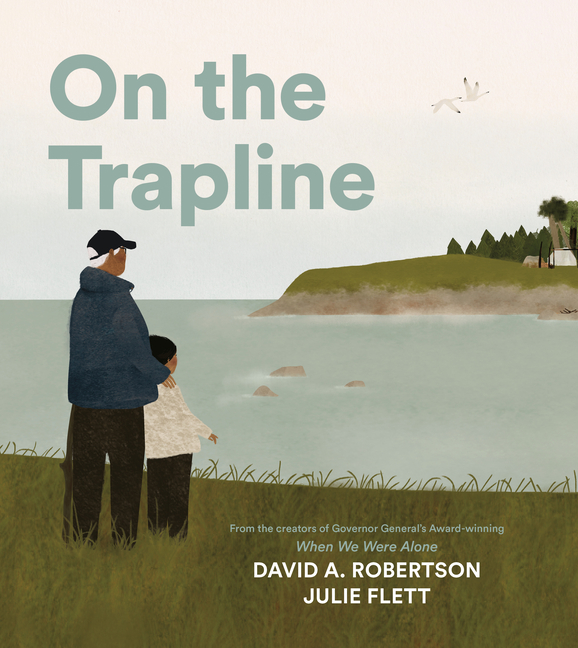Book Description
for On the Trapline by David Alexander Robertson and Julie Flett
From Cooperative Children's Book Center (CCBC)
“Kiskisiw means 'he remembers.’” A young Cree boy leaves the city and travels north by plane with his grandfather to see the trapline where Moshom spent the early years of his life. They land near a small Cree community, and the boy asks, “Is this your trapline?” “No,” Moshom replies, “This is where we lived after we left the trapline.” His grandfather shares memories of life in this community, where the houses were close together and the family all slept in one room during the winter to keep warm. As they rest on the banks of a river, Moshom recalls his school days; he had to learn English and could only speak his own language, Swampy Cree, in secret. They board a motor boat and travel even further north, where they finally reach the trapline. Moshom talks more about his life there: His family lived in a tent and trapped muskrats, both for food and to sell their pelts so that they could buy things like flour, tea, sugar, and lard. After some quiet time together on the trapline and a little fishing, the two head for home. Now both grandfather and grandson have memories of the trapline. Flett’s quiet paintings strike the perfect tone for Robertson’s evocative text, which introduces one word or phrase in Swampy Cree on each page, quietly underscoring the importance of passing on the language from one generation to the next. (Ages 4-8)
CCBC Choices 2022. © Cooperative Children's Book Center, Univ. of Wisconsin - Madison, 2022. Used with permission.


